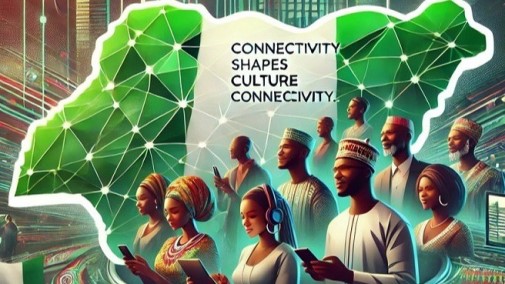For decades, Nigeria’s relationship with technology has been a paradox—a land of cultural richness and ingenuity tempered by infrastructural and systemic gaps. Now, with the government’s strategic push toward a robust digital economy, we are witnessing a seismic shift. The rollout of broadband expansion, youth-focused initiatives, and policy-driven digital governance is not just an economic necessity but a cultural transformation in real time. Connectivity shapes culture, and culture, in turn, dictates how we use technology.
RELATED: Africa’s digital revolution: A trillion-dollar opportunity
Consider the story of a young entrepreneur in Lagos who once struggled with unreliable internet and limited digital tools. She built her business around word-of-mouth referrals, face-to-face networking, and handwritten inventory. But today, with access to better broadband and digital financial platforms, her small fashion line has found an audience beyond Nigeria. Her Instagram-powered business thrives on a mix of traditional storytelling—steeped in Nigerian identity—and modern e-commerce. The government’s digital push did not just improve her access to the internet; it changed how she communicated, marketed, and, ultimately, how she saw her own cultural footprint in a global market.
Technology creates opportunities, culture could slow adoption
But adaptation is rarely linear. While technology creates opportunities, cultural stereotypes and traditional communication norms can slow—or complicate—its adoption. In many Nigerian workplaces, hierarchical communication remains dominant. Face-to-face interactions are still perceived as more legitimate than emails or virtual meetings. The shift to remote work, for example, has been met with both enthusiasm and skepticism. Some embrace the flexibility, while others see it as a weakening of professional discipline.
Then there’s technoculture—the attitudes and practices surrounding digital tools—which has developed unevenly. Nigeria’s rapid social media adoption demonstrates a hunger for connection and self-expression, yet digital literacy remains uneven. The same platforms that allow for political activism and artistic expression also reinforce misinformation and digital echo chambers. The rollout of digital governance, such as the OneGov.ng portal, seeks to streamline processes, yet cultural distrust toward government platforms lingers. Will citizens embrace digital transparency, or will traditional bureaucratic skepticism persist?
These contradictions are not unique to Nigeria, but they are particularly striking in a country where communal values still shape technological engagement. Broadband expansion is promising, yet older generations remain hesitant about digital transactions. The push for fintech innovations is strong, yet cash-based transactions still dominate in informal economies. The migration from IPv4 to IPv6 is a crucial step toward digital security, but what happens when basic digital literacy gaps still exist?
Importance of strategic adaptation
This tension between tradition and innovation is not a sign of failure but of a long-coming transformation. The National Institute for Policy and Strategic Studies (NIPSS) has long emphasized the importance of strategic adaptation. Their recommendation to waive right-of-way (ROW) fees for broadband expansion was supposed to be a breakthrough, yet bureaucratic delays have turned it into an unnecessary debacle. How long must Nigeria stall before ROW policies are fully aligned with digital progress?
The stakes are high. Digital inclusion means more than just access to Wi-Fi; it means rethinking how we communicate, learn, and build economic resilience. The government’s investment in 90,000 km of fiber optic cables is a game-changer, but infrastructure alone cannot erase cultural reluctance. How do we ensure that digital transformation uplifts rather than alienates those most accustomed to traditional ways of engagement?
A country’s digital economy is only as strong as its people’s willingness to embrace it. Nigeria’s youth are undoubtedly leading this charge, leveraging platforms like Flutterwave to drive innovation. Yet, digital progress must reconcile with the realities of cultural resistance and adaptation. The journey toward a fully digitized Nigeria is not just about technological upgrades—it’s about how we, as a society, negotiate the space between where we’ve been and where we’re going.
So, as we witness this digital acceleration, the question lingers:
“Will Nigeria’s digital transformation reshape culture, or will culture ultimately dictate the speed and success of this transformation?”

































